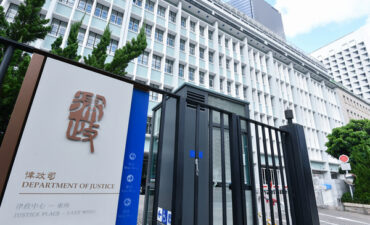PETALING JAYA: The Federation of Malaysian Manufacturers (FMM) is supportive of a review of the minimum wage but a gradual adjustment would be more workable and manageable for the industry instead of a sharp increase to RM2,000 as proposed by many other groups.
FMM president Tan Sri Soh Thian Lai said a gradual adjustment to the minimum wage rate can provide a balanced approach to enhancing workers’ wellbeing without the steep financial burden on businesses which are only just starting to see prospects of more positive business conditions.
“The quantum of increase called by many quarters represents an immediate increase of 33% on the basic salary which will have a spiralling knock-on effect to the overall payroll costs,” Soh said in a statement today.
With micro small and medium enterprises accounting for 96.9% of overall establishments in Malaysia based on 2023 data, he said, the industry strongly feels that such a sharp increase would have an undesirable impact on the economy and business sustainability. MSMEs, especially those in suburban areas, would be most impacted with a sharp rise in wage cost, he added.
At the same time, Soh said, the economy would see an immediate additional monthly outflow of close to RM800 million with the repatriation of funds by foreign workers (based on 1.6 million legal foreign workers) with no direct positive impact to the local economy.
He said a gradual adjustment to the minimum wage would help avoid shock to businesses, particularly MSMEs which may not have the financial flexibility to absorb a large increase in labour costs.
“It would also allow businesses to adapt gradually, making necessary adjustments in their cost structures, operations, and productivity to handle increased wages. Businesses would also be able to maintain sustainability without resorting to drastic measures like layoffs or price increases to cope with the added costs as well as mitigate inflationary pressures as an immediate steep wage hike could lead to inflationary pressures, as businesses might have to pass on the increased costs to consumers,” he said.
He added that it would be unfair and misleading to use the increase in minimum wage of civil servants to RM2,000 announced by the prime minister in May as the yardstick for the private sector as news reports have indicated that the total income in arriving at the RM2,000 for the civil servants would include fixed allowances and would not be automatic for all.
The National Wages Consultative Council Act 2011 stipulates that the minimum wage is calculated based on the basic wage alone, excluding any allowances or additional benefits. “This distinction highlights the different considerations and components of remuneration between the public and private sectors and why it is important to treat these benchmarks separately when discussing wage policies,” said Soh.
Based on preliminary findings of the recent FMM Business Conditions Survey, the first half of 2024 continued to be challenging albeit an improvement from second-half 2023, while the industry projects a more positive outlook for the second half of 2024.
With the continued environment of elevated cost of doing business, any further shocks to the business environment may derail the anticipated positive growth of the sector, Soh said.
FMM urges the government to take cognisance of the multiple cost increases which the industry continues to face this year and adopt a more holistic approach in the review process of the minimum wage order including having engagement with stakeholders, he added.









